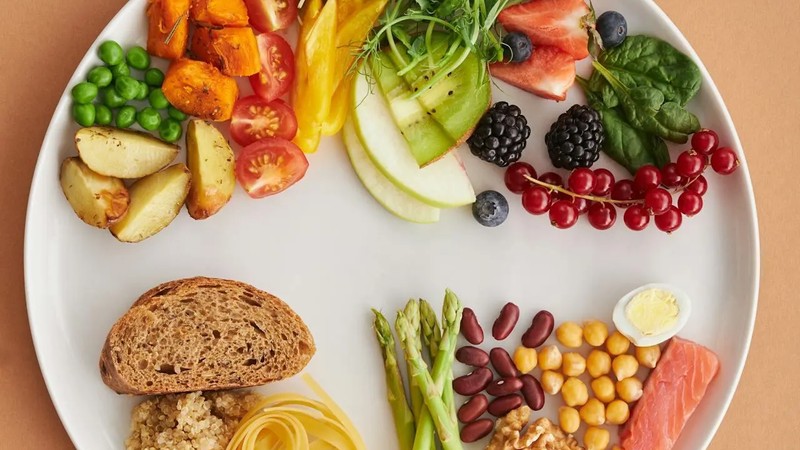South Africa is facing a growing cancer crisis. In the next five years, the number of new cancer cases each year could double to 120 000. This highlights how at risk we are.
For women, breast cancer is the most common, with a lifetime risk of 1 in 27.
But here’s the question that often lingers: Can what we eat help us in this fight?
October, which includes Breast Cancer Awareness Month and World Food Day, is a good time to think about how nutrition can help prevent cancer and support recovery.
No single food or diet can make us immune to cancer, but research shows our daily food choices do affect our risk.
When we hear about “cancer-fighting foods”, the term often refers to a plant-based diet brimming with phytochemicals, natural compounds found in plants that help combat chronic diseases, including cancer.
“Phytochemicals are abundant in vegetables, fruits, whole grains, nuts, and seeds,” explains Lindsey Wohlford, a wellness dietitian.
“These compounds have anti-inflammatory and antioxidant properties that may protect cells from damage and reduce the risk of chronic diseases, including cancer.”
For instance, cruciferous vegetables like broccoli contain sulforaphane, a compound that has been shown to reduce tumour growth in some laboratory studies.
Similarly, carrots, rich in beta-carotene, have been linked to a lower risk of certain cancers, while berries are packed with anthocyanins, antioxidants that combat cell damage.

Can food alone prevent cancer?
While headlines often tout the latest “superfood” as a magic bullet against cancer, the reality is more nuanced. There’s no single food or diet that can eliminate your cancer risk. Cancer has many causes; genetic, environmental and lifestyle factors all play a role.
However, a healthy, balanced diet can make a significant difference. Research suggests that up to 50% of cancer-related deaths are linked to preventable factors like obesity and poor nutrition. Maintaining a healthy weight, consuming plant-based foods, and limiting processed and sugary foods are essential steps in lowering cancer risk.
The role of omega-3 fatty acids
Among the most studied nutrients in cancer prevention are omega-3 fatty acids, found in fatty fish, walnuts, flaxseeds and canola oil. These healthy fats are known for their anti-inflammatory properties, which may help suppress the growth of cancer cells.
“Emerging evidence points to the importance of a higher omega-3 to omega-6 ratio in reducing inflammation and potentially lowering cancer risk,” says Megan Pentz-Kluyts, a nutrition and dietetics consultant for CANSA and B-Well.
She recommends simple swaps, such as using canola oil, which is high in omega-3s, in everyday cooking.
For those already living with cancer, food safety for cancer patients becomes just as critical as nutrition. A compromised immune system can make patients more vulnerable to foodborne illnesses.
According to the World Health Organization, 1 in 10 people globally fall ill from contaminated food each year.

“Safe food practices like washing hands, separating raw and cooked foods, and refrigerating leftovers promptly are simple but powerful ways to protect health,” Pentz-Kluyts advises.
Cancer prevention doesn’t require an overhaul of your entire lifestyle. Small, consistent changes can have a cumulative effect. For example:
- Start your day right: Swap sugary cereals for a bowl of high-fibre oatmeal topped with nuts, seeds, and berries.
- Rethink your snacks: Replace chips or sweets with crunchy carrot sticks or an apple.
- Add more greens: Incorporate at least one serving of leafy greens or cruciferous vegetables into your daily meals.
Even comfort foods can be adapted for better health. For example, by adding walnuts or a drizzle of canola oil to apple cinnamon oats, you can boost omega-3s and fibre while still enjoying a warm, satisfying breakfast.
For those on a cancer journey, food is more than just fuel; it can offer comfort and a sense of control during an uncertain time.
“Consulting a registered dietitian can be empowering,” Pentz-Kluyts shares. They can guide you toward nutrient-rich foods that support your health and recovery.”
For those unable to access professional advice, organisations like the Cancer Association of South Africa (CANSA) provide excellent resources to help individuals make evidence-based dietary decisions.

Here are some practical, research-backed additions to your diet:
- Broccoli: Contains sulforaphane, which may combat cancer cell growth.
- Carrots: Rich in beta-carotene, linked to a reduced risk of certain cancers.
- Berries: High in antioxidants that protect cells from damage.
- Cinnamon: Known to regulate blood sugar and potentially slow cancer cell proliferation.
- Fatty fish: Packed with omega-3s, which reduce inflammation.
At its core, cancer prevention is not about quick fixes or trendy superfoods. It’s about adopting a sustainable, healthy lifestyle, one that prioritises nutrient-dense foods, regular physical activity, and mindful eating.
As we commemorate Breast Cancer Awareness Month, let’s remember that every choice we make matters, from the ingredients we select to how we prepare and handle them.
